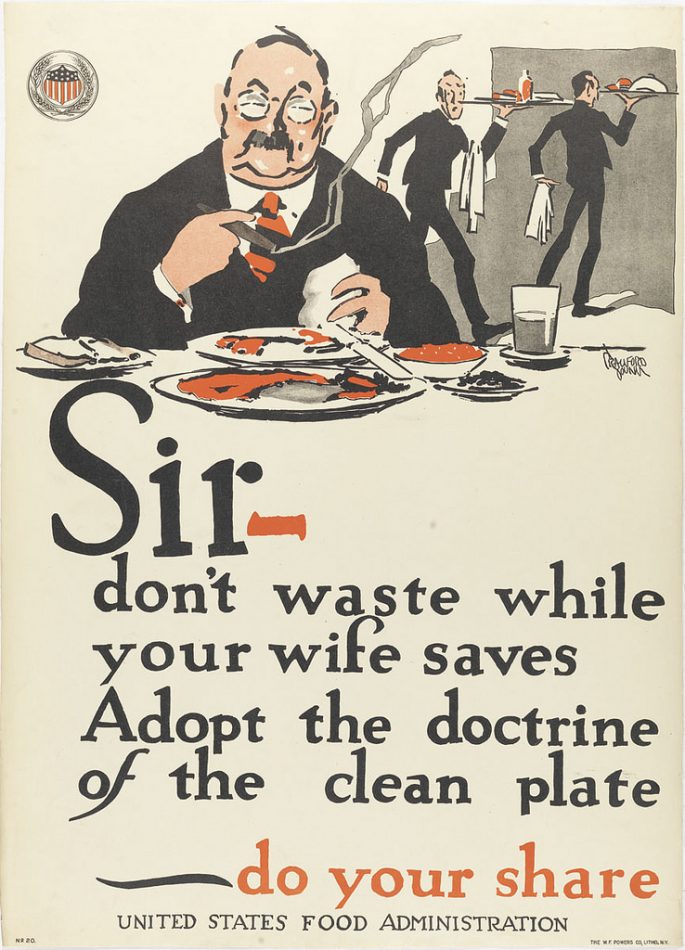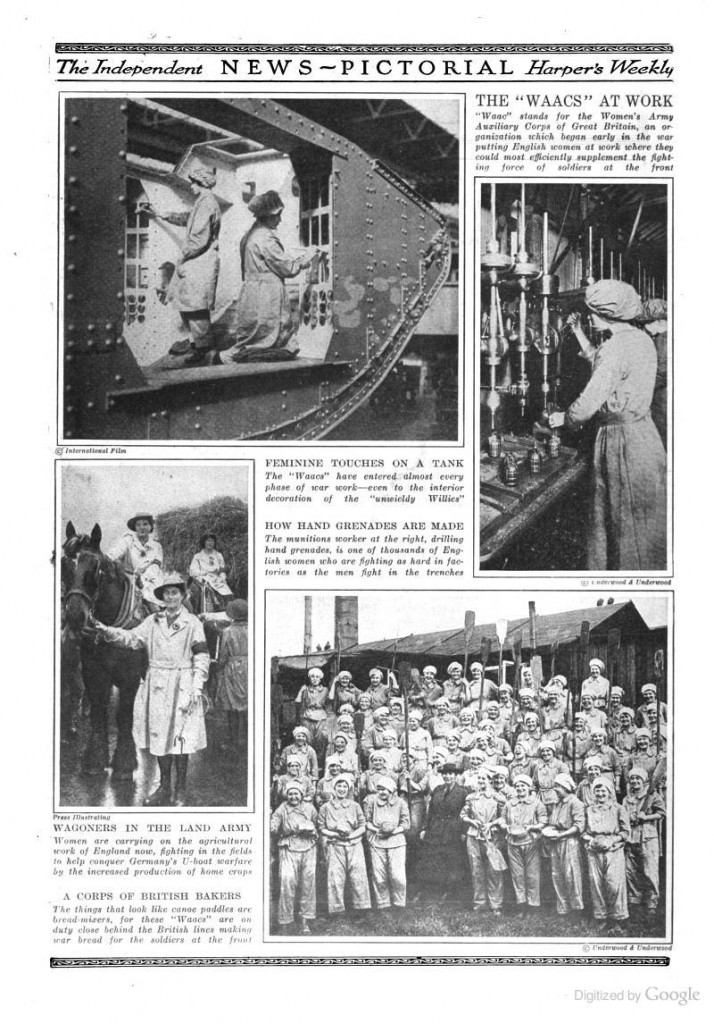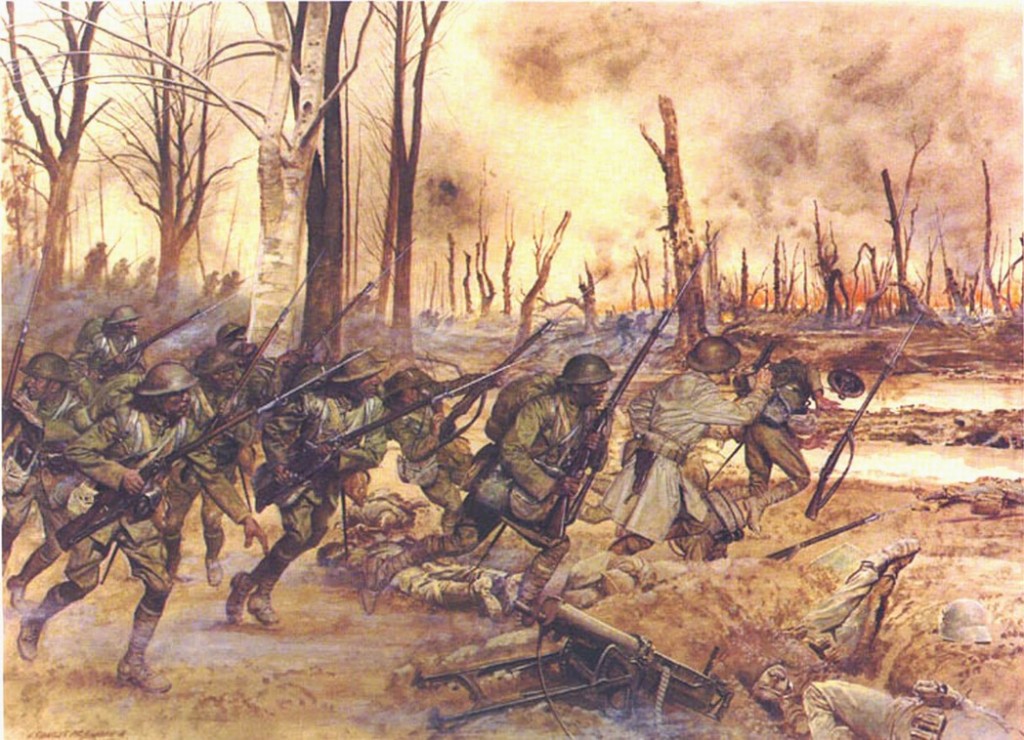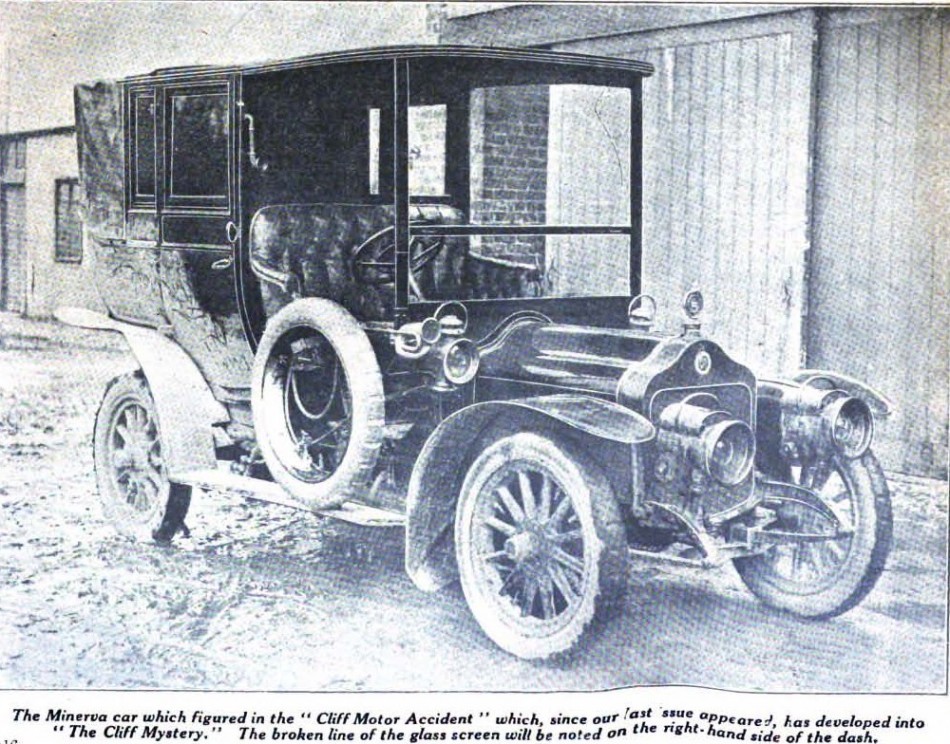Excerpt from Experiences of a Dug-out, 1914-1918 by Sir C. E. Callwell:
The Press Bureau which was established at the commencement of the war was a civil department, entirely independent of the Admiralty and the War Office although it was in close touch with those institutions, as also with the Foreign Office, the Board of Trade and other branches of the Government. In so far as the War Office was concerned, the Bureau dealt with the Operations Directorate, which was responsible for watching the censorship of newspapers in general, just as it was responsible for actually controlling the censorship of cables and foreign correspondence. As the primary raison d’être of newspapers is to provide their readers with news, it was inevitable that restrictions placed upon publication of information, however necessary they might be in the interest of the State, would hamper the activities of those in charge and be regarded as a nuisance. It was natural that the Press should chafe at the restraint and should be disposed to exaggerate the inconvenience to which it was put. But the public, it must be remembered, have heard only one side of the story. The country has derived its information concerning the Press censorship from the Press itself—in other words, from what is to all intents and purposes a tainted source. The nation has had to decide on a subject of general interest on one-sided evidence.
In so far as the military share of the Press censorship was concerned, some of the groans of its victims were, no doubt, well justified. Delays were inevitable. But cases of unnecessary delay no doubt occurred. Instances could be mentioned of one censor sanctioning the publication of a given item of news while another forbade mention thereof. It is human to err, and individual censors were guilty of errors of judgment on occasion. Examples of information, which might have been given to the world with perfect propriety, being withheld, could easily be brought to light. How the humorists of the Fourth Estate did gloat over “the Captains and the Kings”! There was at least one instance early in the conflict of an official communiqué that had been issued by the French military authorities in Paris being bowdlerized before publication on this side of the Channel.
Few of the detractors of the military Press Censorship, on the other hand, gave evidence of possessing more than a shadowy conception of the difficult and delicate nature of the duties which that institution was called upon to carry out. There is little evidence to indicate that the critics had the slightest idea of the value of the services which it performed. Nor would they appear to be aware that the blunders committed by the censors, such as they were, were by no means confined to malapert blue-pencilling of items of information that might have appeared without disclosing anything whatever to the enemy. As a matter of fact, cases occurred of intelligence slipping through the meshes which ought not on any account to have been made public property.
When, for example, one particular London newspaper twice over during the very critical opening weeks of the struggle divulged movements of troops in France, the peccant passage was, on each occasion, found on investigation to have been acquiesced in by a censor—lapses on the part of overworked and weary men poring over sheaves of proof-slips late at night. Nearly all our newspapers published a Reuter’s message which stated the exact strength of the Third Belgian Division when it got back by sea to Ostend—not a very important piece of information, but one that obviously ought not to have been allowed to appear. At a somewhat later date, a journal, in reporting His Majesty’s farewell visit to the troops, contrived to acquaint all whom it might concern that the Twenty-eighth Division, made up of regular battalions brought from overseas, was about to cross the Channel.
It will readily be understood that incidents of this kind—those quoted are merely samples—worried the officials charged with supervision, and tended to make them almost over-fastidious. Soldiers of experience, as the censors were, remembered Nelson’s complaint that his plans were disclosed by a Gibraltar print, Wellington’s remonstrances during the Peninsular War, the details as to the siege-works before Sebastopol that were given away to the enemy by The Times, and the information conveyed to the Germans by a Paris newspaper of MacMahon’s movement on Sedan. They were, moreover, aware that indignant representations with reference to the untoward communicativeness of certain of our prominent journals were being made by the French and Belgians. So the Press Bureau took to sending doubtful passages across for our decision—a procedure which necessarily created delay and caused inconvenience to editors. Publication, it may be mentioned, was approved in quite four cases out of five when such references were made. One rather wondered at times, indeed, where the difficulty came in.
But a verdict was called for in one case which imposed an uncomfortable responsibility upon me. This was when a telegram from the Military Correspondent of The Times from the front, revealing the shell shortage from which our troops were suffering, was submitted from Printing House Square to the Press Bureau in the middle of May 1915, and was transmitted by the Press Bureau to us for adjudication. It was about three weeks after Mr. Asquith’s unfortunate reference to this subject in his Newcastle speech. Publication of the message could at the worst only be confirmatory to the enemy of information already fully known, and national interests did seem to demand that the people of the country should be made aware how this particular matter stood, seeing that the labour world had not yet fully risen to its responsibilities in connection with the prosecution of the war which depended to so great an extent upon our factories. Choice of three alternatives presented itself to me—leave might be refused, higher authority might be referred to, publication might be sanctioned then and there. The third alternative was adopted, although one or two minor details in regard to particular types of ordnance were excised. It seems to be generally acknowledged that publication of the truth about the shell shortage was of service to the cause; but for some of the attacks upon the War Office to which the publication of the truth gave rise there was no justification whatever. The attacks, indeed, took the form of a conspiracy, which has only been exposed since mouths that had to remain closed during the war have been opened.




